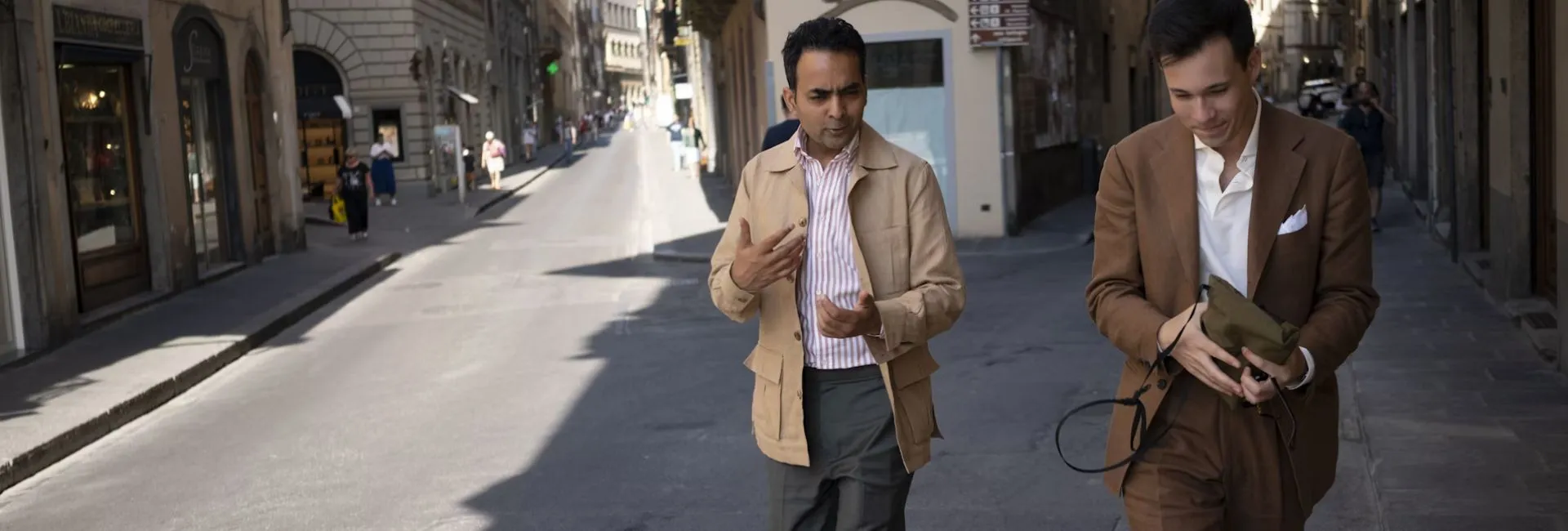(June 24, 2025) Luxury shirts with hand-stitched perfection and old-world charm aren’t just coming from Europe anymore—they’re being made in India. At the heart of this shift is 100Hands, a homegrown brand that’s combining fine Indian craftsmanship with world-class design. From the textile city of Amritsar to top stores like Harrods in London and Bergdorf Goodman in New York, 100Hands is showing the world what Indian artisans can do. With over 260 skilled hands working on each shirt, this is more than just fashion—it’s a quiet revolution in quality, tradition, and global style.
“We spend 40 minutes on a buttonhole. Others would spend three to four minutes and finish the same,” explains Akshat Jain, founder of luxury shirt brand 100Hands that was recently named by Financial Times as one of the world’s best luxury shirtmakers.
“While others choose a thicker thread and wider sewing while marketing that ‘by hand’ means inconsistent. What we are selling is precision, by hand, we are going to do an operation much neater, more precise, and cleaner than even a machine,” he tells Global Indian.
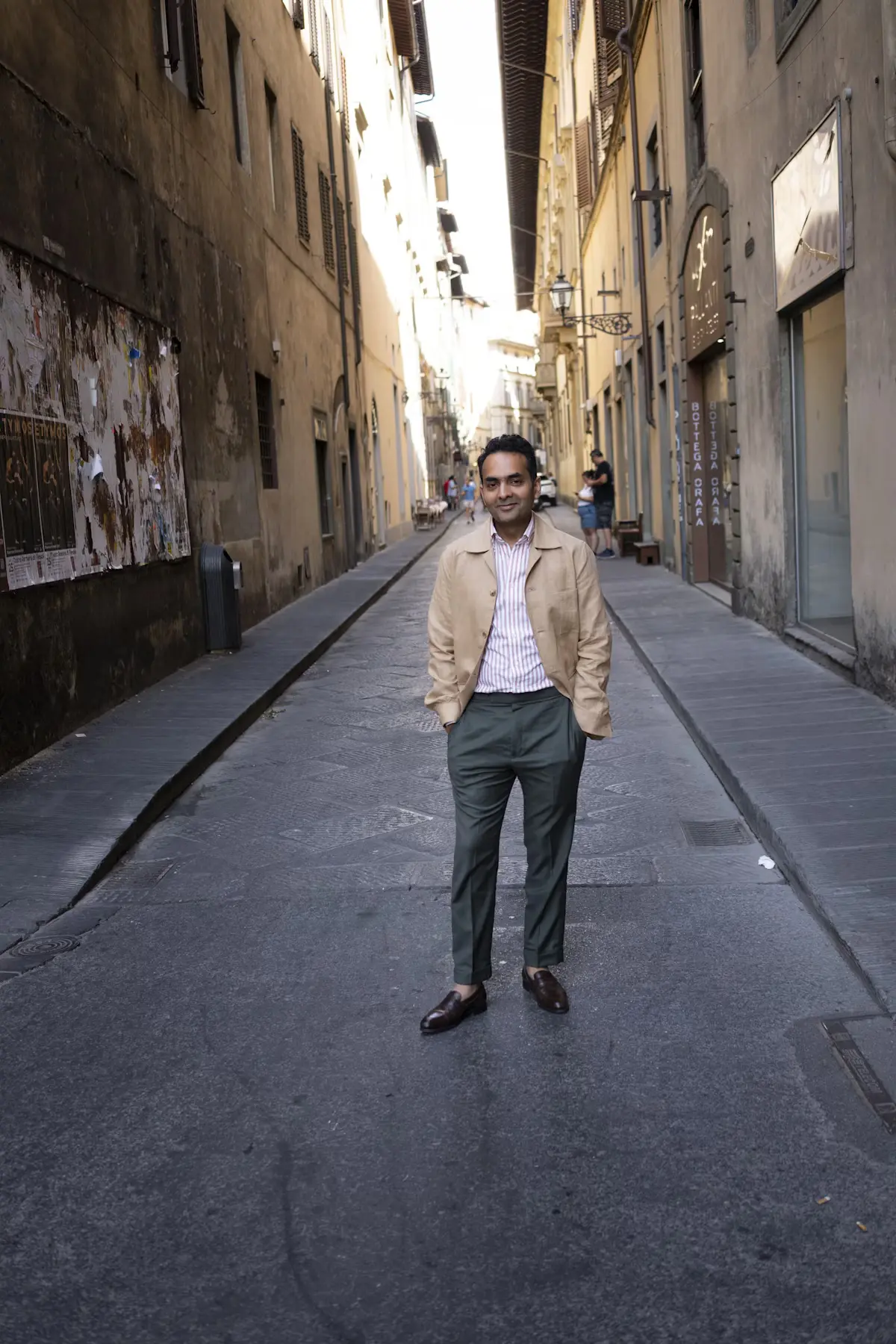
Akshat Jain
This extraordinary attention to detail exemplifies the philosophy behind 100 Hands, a brand that has quietly revolutionised luxury shirtmaking from an unexpected source: India. In less than a decade, Akshat has transformed perceptions of Indian craftsmanship in the global luxury market, building a brand that now stands shoulder to shoulder with the finest European houses.
Produces approximately 85,000 shirts annually, employing over 260 artisans and retailing at Harrods in London and Bergdorf Goodman in New York, this brand is the uncommon story of an Indian atelier taking the world by storm.
A legacy of textiles
Akshat’s connection to textiles runs deep. “My family has been in textiles for now over 160 years,” he says. “It’s a long history mostly with spinning and yarn. Most of my childhood has been around all these rolls of yarns.” Growing up in Amritsar for his first ten years before attending boarding school in the mountains, Akshat was immersed in his family’s textile business.
Yet, he initially chose a different path. “I studied engineering, software engineering, like a good Indian child,” he jokes. After working at Infosys for two and a half years, he moved to the Netherlands, completed an MBA, and entered the world of mergers and acquisitions, specializing in valuation and negotiations.
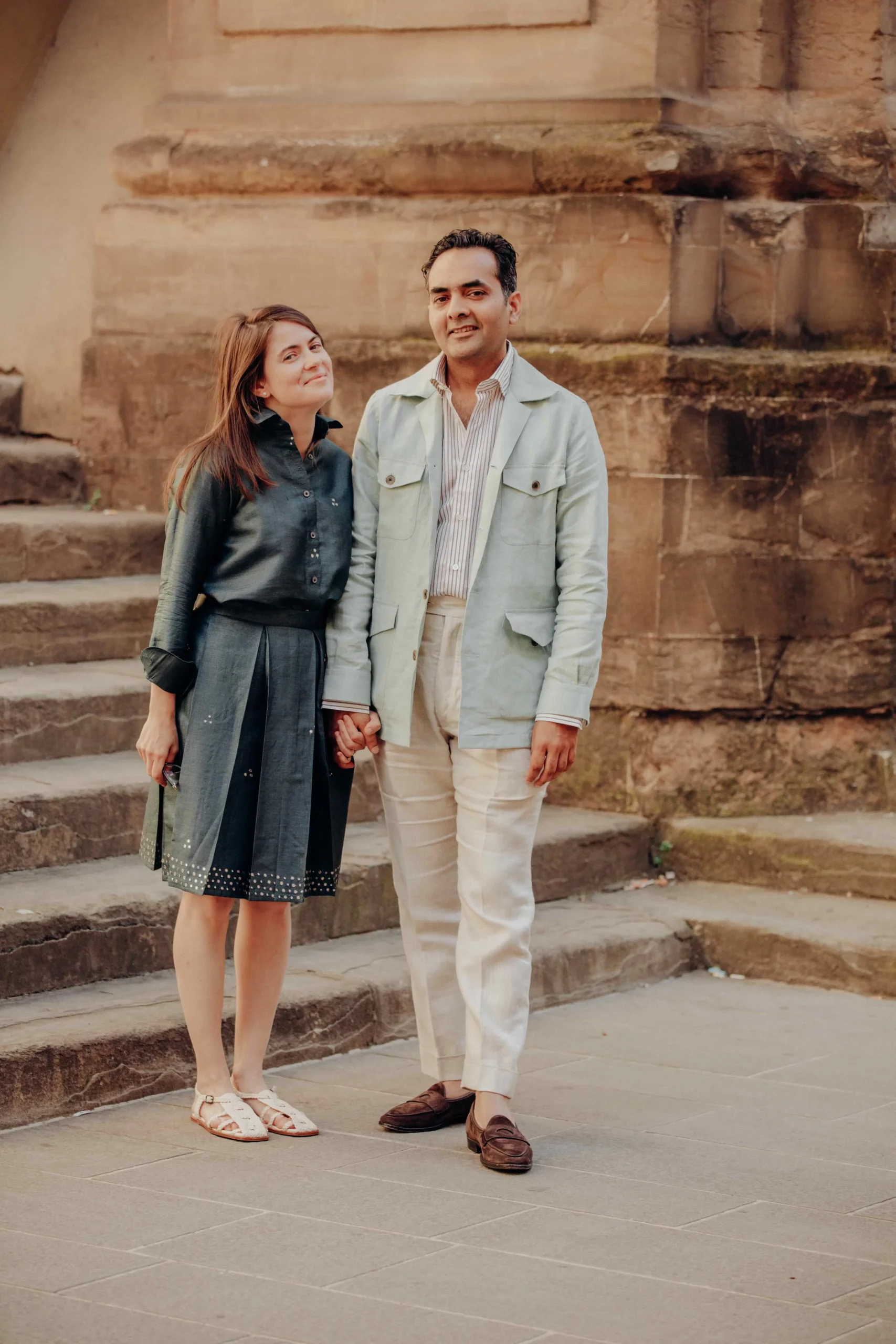
Akshat Jain with wife Varvara Maslova
Interestingly, returning to textiles wasn’t his immediate plan. “Right from the start, I knew I’m going to do something of my own because I come from a family of entrepreneurs where I was the first one to finish graduation,” the designer reflects.
The Birth of 100Hands
The genesis of 100Hands wasn’t initially about creating a brand. Akshat states, “The original plan was to just be a very high-end manufacturer for other companies. The main focus was custom-made, but with a full professional setup rather than a local boutique.”
As he defined the product and quality standards, his wife, Varvara Maslova made a suggestion that would change everything: “If you are going to put so much effort into it and go so deep, why make it for somebody else? Why not just have your own brand associated with it?”
The name 100Hands emerged from the production process itself. Each shirt passes through nearly 50 skilled artisans and requires nearly 35 hours to make, showcasing how each detail is paid meticulous attention.
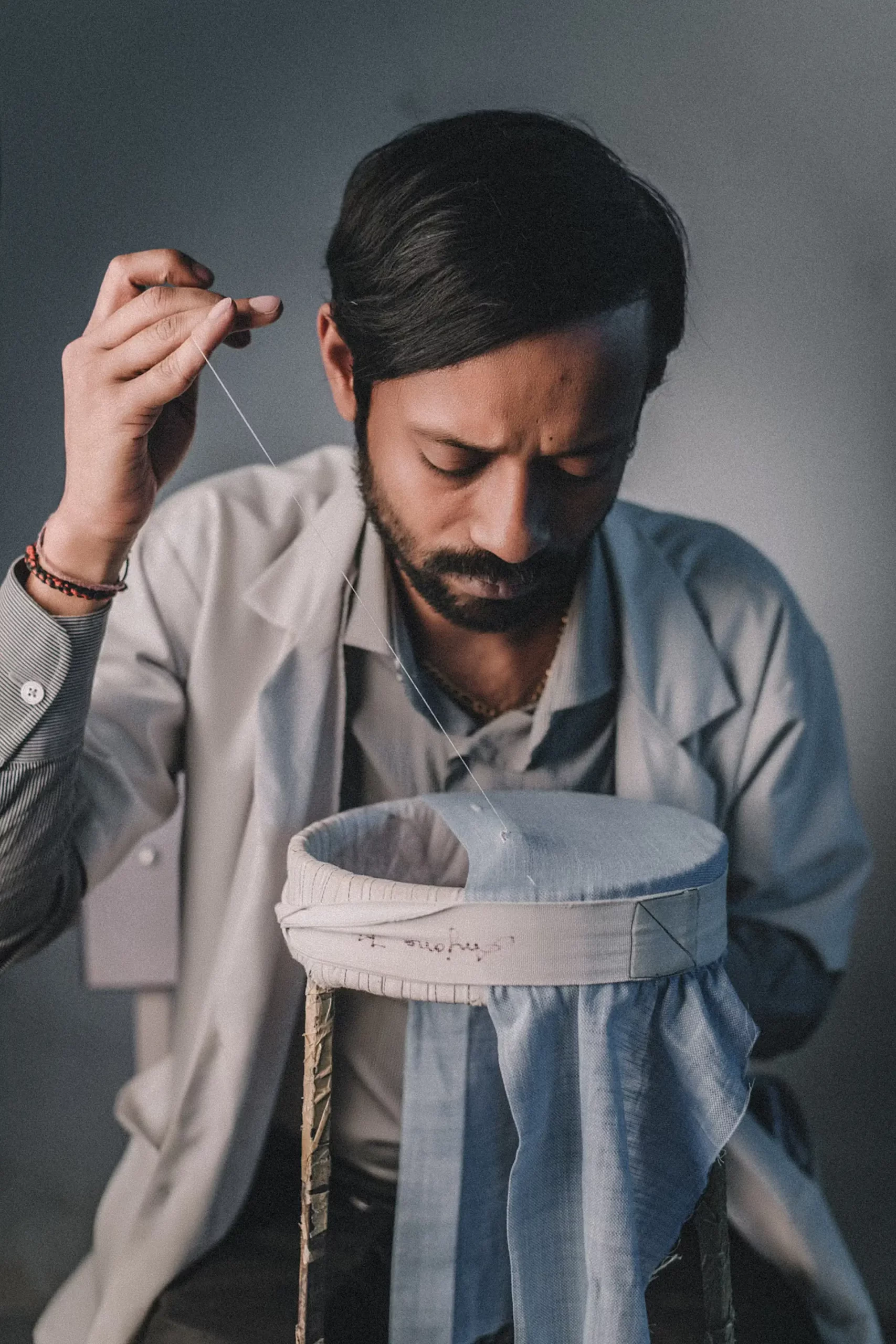
100Hands
Challenging perceptions
One of the biggest challenges the entrepreneur faced with 100Hands was overcoming global scepticism toward luxury products made in India. “We don’t really associate luxury brands with India,” he says, “which is surprising because our maharajas were connoisseurs of so many fine things.”
While Italy, London, and New York have long dominated the luxury fashion landscape, Akshat never doubted the quality he could deliver. The real challenge lay in perception and branding.
The mission was much larger. It was about representing India’s overlooked legacy in textiles. To stand out, he focused on creating a product so uncompromising in craftsmanship that it would be impossible to ignore. Still, rejections came, often tied to legacy loyalties: some retailers declined purely because their stores only carried Italian or British brands.
Starting out in the Netherlands proved to be a strategic edge. “We were lucky to begin in Holland, which became like a home market for us,” Akshat shares. Dutch retailers were more open-minded, and within four months, over 40 stores stocked 100Hands shirts.
View this post on Instagram
With their base in Amsterdam and a global-facing image, the brand initially downplayed their Indian origin. That changed after a conversation with a Paris-based journalist who urged them to own their heritage. The turning point came when they embraced India as a core part of their identity. A move that, according to Akshat, “changed everything.” Consistency, conviction, and customer experience turned that tide. He states, “We were high on service. We evolved quickly. And slowly, we built credibility.”
Uncompromising craftsmanship
What sets 100Hands apart is their obsessive commitment to quality and craftsmanship. Rather than accepting traditional methods without question, ‘it was done like this for 50 years’, 100Hands innovated new techniques. He says, “We have changed a lot of ways how we make it, making it more complicated even. For example, we invested a lot of time and R&D in our collars. And our collars have continuous feedback from everybody that they stand very good. We don’t have our collars drooping down after 5,000 washes even.”
Despite global acclaim, the luxury shirtmaker remains grounded. He smiles, “How does it feel to be called one of the world’s best? We’re going in the right direction. But honestly, I feel we’re far behind where I want to be.”
View this post on Instagram
100Hands offers ready-to-wear, made-to-measure, and comfortable shirts priced between ₹35,000 and ₹55,000, with bespoke shirts going further up. Crafted for discerning eyes, the shirts feature meticulous details such as hand-rolled hems, rotated sleeve attachments for enhanced fit, and an exceptionally high stitch density of 25 stitches per inch. Each shirt is made from ultra-premium materials including fine linens from Belgium and France, and luxurious three-ply fabrics (a rarity, as most shirts use one or two-ply textiles). The result: consistently praised fit and craftsmanship.
While the brand is beloved by connoisseurs and featured in elite boutiques, he hopes for broader recognition. “Even if someone doesn’t buy, I want people to say, ‘I know 100Hands. That’s the best brand from India.’”
The way forward
The brand is now expanding into India, with plans to retail at Gallery Lafayette in Mumbai and through a collaboration with Chennai tailor Osman Abdul Razak. They already count Sachin Tendulkar and Farhan Akhtar among their Indian clientele.
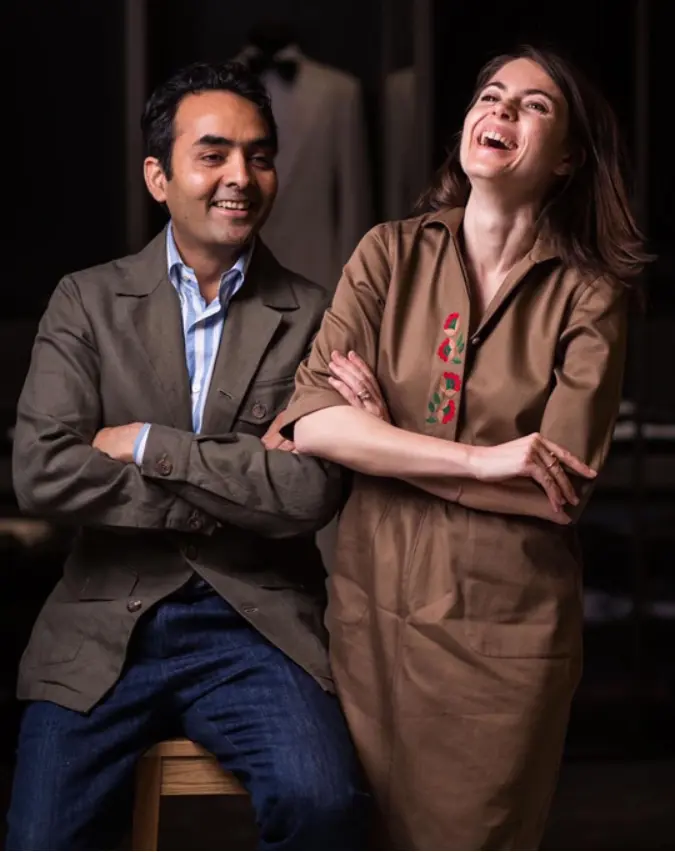
When asked who he’d most like to see wearing his shirts, Akshat defers to his wife’s preference: “She likes Leonardo DiCaprio a lot. So that would be a perfect ambassador for us.” Ask him what he does when he’s not working, and he chuckles. “I’m always working.” He does occasionally unwind with holidays, but the company consumes most of his time.
Still, the connection to his homeland is constant. “I love India,” he says and adds. “Placing the factory near my hometown (Amritsar) was the best decision. It keeps me grounded. It keeps me real.”
In a world flooded with fast fashion and machine-made perfection, 100Hands is a quiet revolution of bringing the best of India to the world. Through one man’s steadfast commitment to quality and refusal to compromise, he is reshaping how the world views Indian luxury.
ALSO READ | Harsh Agarwal: Forbes 30 Under 30 designer celebrating Indian textiles and craftsmanship

